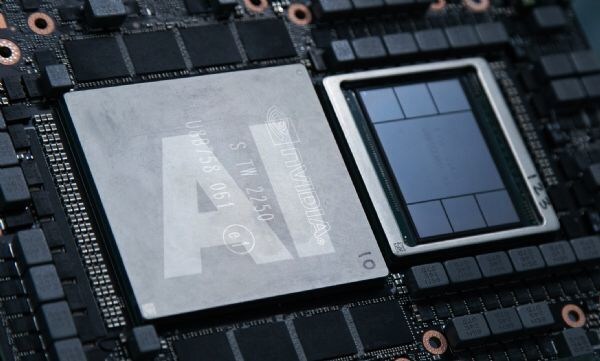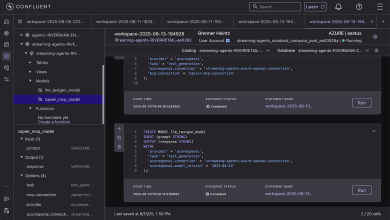DIGITIMES Research Says Rise of Cloud and Edge AI Paving Way for New Semiconductor Opportunities
The Semiconductor Industry Is the Beneficiary of the Cloud’s Rise and the Growth of Edge AI

DIGITIMES Research released the latest AI Chips Special Report, which highlights that the training and inference of generative AI (Artificial Intelligence) models rely heavily on substantial computing resources. Artificial Intelligence chips providing computational power are becoming a focal point.
Whether it is high-performance AI accelerators in cloud data centres or edge AI device chips driven by privacy concerns, these developments signal an explosive growth period for both hardware and software opportunities in AI applications. Advanced manufacturing technologies and capacities of wafer foundries will be key to realizing the accelerated computing needs of AI chips.
Cloud-Based AI Ushering in New Era, According to DIGITIMES Research
Generative AI development is led by cloud-based AI, with wafer foundries’ advanced processes, advanced packaging, HBM capacity expansion, and strong demand for AI servers in cloud data centres. Analyst Stella Weng forecasts in the latest DIGITIMES Research that from 2023 to 2028, the compound annual growth rate (CAGR) of high-end GPUs for the cloud will reach 44%, while cloud ASIC accelerators will see a CAGR of 52%.
Weng further notes that 2022 to 2024 will be a high-growth period for cloud AI accelerators. As cloud service providers refine their AI application infrastructure, the growth in AI server demand is expected to slow down in the future, gradually shifting towards replacement-focused demand.
In response to the strong production demand for cloud and edge AI chips, wafer foundries are also accelerating the expansion of advanced processes and packaging capacities. Analyst Eric Chen estimates that from 2023 to 2028, the CAGR of advanced process expansion below 5 nanometres in the wafer foundry industry will reach 23%.
In the field of advanced packaging, AI chips heavily rely on TSMC’s CoWoS packaging technology, and thus TSMC’s CoWoS capacity expansion CAGR will exceed 50% from 2023 to 2028. Chen also mentioned that to meet the shipping and performance enhancement needs of AI chips, wafer foundries are actively advancing the development of advanced processes and packaging technologies, including photolithography techniques, new transistor structures, back-end power delivery (BSPDN), 2.5D/3D advanced packaging, glass substrates, chip-on-wafer-on-substrate (CoWoS), and silicon photonics integration.
DIGITIMES Research Foresees Scaled Production Due to Cloud-Based Services and Edge Deployments
Generative AI applications are rapidly expanding, transitioning from cloud-based services to edge deployments. DIGITIMES Research believes that smartphones and PCs will be the first to adopt scaled production. The development and market changes of AI application processors (APs) in smartphones are noteworthy.
Analyst Jim Chien forecasts that global shipments of generative AI smartphone APs will reach 260 million units in 2024 and could rise to 800 million units by 2028, with a shipment CAGR of 65% during this period. Benefiting from the growth in AI smartphone AP shipments, an estimated 240 million AI smartphones will be shipped in 2024, with a trend of annual increases, potentially exceeding a 50% penetration rate for AI smartphones by 2028.
In the AI PC sector, analyst Joyce Chen notes that in 2024, PC hardware and software vendors are actively testing the AI PC market. By 2025, with PC processors enhancing computational power and reducing power consumption through more advanced processes, and with Microsoft’s discontinuation of Windows 10 and the introduction of Copilot products to the endpoint market, a new wave of AI PC growth will emerge.
Chen predicts that AI PC processor shipments will approach 50 million units in 2024, with subsequent shipments increasing annually as PC hardware and software integration stabilises, reaching up to 150 million units by 2028, with a shipment CAGR of 39% during this period.
Looking ahead, the deployment of AI applications, according to the DIGITIMES Research, will bring substantial business opportunities, not only expanding existing markets but also transforming current technology and capacity demands under new needs, further intensifying competition in the chip market and leading to unprecedented changes in the semiconductor ecosystem.
For more insights into the impact of generative AI on cloud and edge computing, read DIGITIMES Research’s latest AI Chip Special Report. It will guide you through the development of technologies across the supply chain, including upstream, midstream, and downstream, as well as the emergence of various AI hardware devices, providing detailed insights into market share and development blueprints for AI chips.




